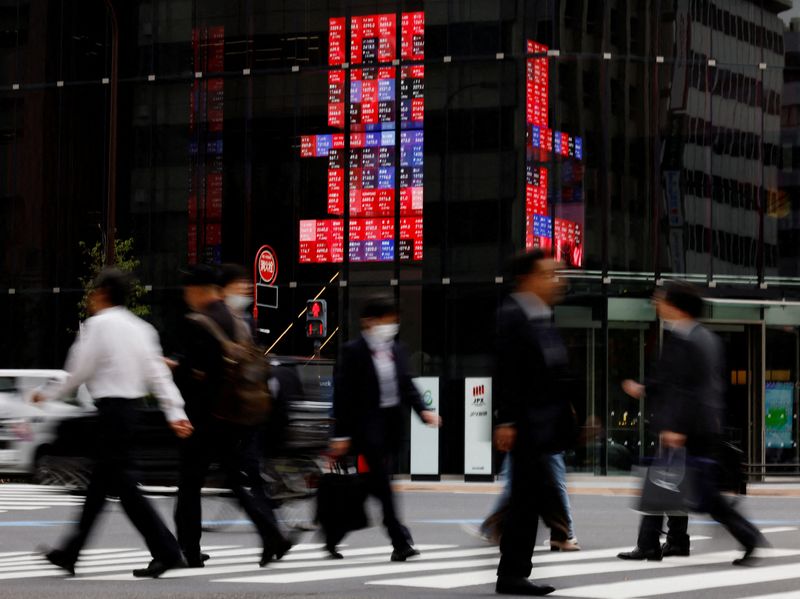Who is Kevin Hassett? Wolfe looks at the Trump ally tipped to become Fed Chair.
By Makiko Yamazaki
TOKYO (Reuters) - Japanese corporate spending on plant and equipment accelerated in the third quarter, signalling solid domestic demand was underpinning the country's fragile economic recovery and strengthening the case for further interest rate hikes.
Capital spending surged 8.1% year-on-year in the third quarter, finance ministry data showed, accelerating from the previous quarter's 7.4% gain and the strongest showing since a 16.4% jump for October-December last year. It grew 1.7% on a seasonally adjusted quarterly basis.
The data, which will be used to calculate revised gross domestic product figures due on Dec. 9, suggests "the economy is moving in line with the Bank of Japan's forecasts," said Takeshi Minami, chief economist at Norinchukin Research Institute.
"I believe the timing for the next rate increase is approaching," said Minami, who expects the BOJ to decide on another rate hike this month.
The BOJ ended negative interest rates in March and raised short-term rates to 0.25% in July on the view that Japan was progressing towards durably achieving its 2% inflation target. Just over half of economists polled by Reuters expect the BOJ to raise rates at its Dec. 18-19 meeting, most predicting a hike to 0.5%.
BOJ Governor Kazuo Ueda told the Nikkei newspaper in an interview last week that the timing of the next interest rate hike was "approaching", leaving open the chance of a December rate bump.
Preliminary GDP data last month showed Japan's economy expanded by an annualised 0.9% in the third quarter, driven by stronger-than-expected private consumption.
Business spending has remained generally solid in recent years as companies invest more in automation and IT to offset growing labour shortages.
Recurring profits for companies were, however, a dismal spot in Monday's data, falling 3.3% from a year earlier to mark their first drop in seven quarters. Corporate sales rose 2.6%.
Manufacturers, particularly automakers and automotive component makers, led the profit declines due to intensifying competition in overseas markets, raising concerns that weaker profits could eventually turn firms cautious about making fresh investments.
A private-sector factory survey showed that Japan's factory activity shrank at the fastest pace in eight months in November, as soft demand prompted firms to trim production.
"The profit trend in the manufacturing sector is likely to stay weak amid a slowdown in the global economy and weakening semiconductor demand," said Masato Koike, senior economist at Sompo Institute Plus.
Prolonged weakness in the Chinese economy and potential U.S. protectionist trade policies could also lead Japanese firms to postpone capital investment decisions, economists said.
U.S. President-elect Donald Trump has pledged tariffs on the nation's three largest trading partners - Canada, Mexico and China, potentially affecting global supply chains in a wide range of industries.
"The wait-and-see mood is likely to increase among Japanese firms over their investment plans till there is more clarity over whether Trump implements higher tariffs or not," Norinchukin's Minami said.
